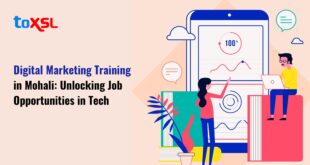Artificial Intelligence (AI) is no longer a futuristic concept; it is a present-day reality that is reshaping our world in profound ways. From healthcare to finance, education to entertainment, AI is transforming industries and redefining how we live, work, and interact. In this article, we will explore the future of AI, its potential impacts, and the challenges it presents.
The Evolution of AI: From Concept to Reality
AI has come a long way since its inception in the 1950s. Initially, AI was a theoretical concept, with researchers exploring the possibility of creating machines that could mimic human intelligence. Over the decades, advancements in computing power, data availability, and algorithmic innovations have turned AI into a practical tool that is now integrated into our daily lives.
Key Milestones in AI Development
- 1956: The term “Artificial Intelligence” is coined at the Dartmouth Conference.
- 1997: IBM’s Deep Blue defeats world chess champion Garry Kasparov.
- 2011: IBM’s Watson wins the game show Jeopardy! showcasing natural language processing capabilities.
- 2016: Google’s AlphaGo defeats the world champion in the complex game of Go.
- 2020s: AI becomes ubiquitous, powering everything from virtual assistants to autonomous vehicles.
How AI is Reshaping Industries
AI is not just a technological advancement; it is a transformative force that is reshaping industries across the board. Here are some key areas where AI is making a significant impact:
Healthcare
AI is revolutionizing healthcare by enabling more accurate diagnoses, personalized treatment plans, and efficient drug discovery. Machine learning algorithms can analyze vast amounts of medical data to identify patterns and predict outcomes, leading to better patient care.
- Diagnostics: AI-powered tools can analyze medical images, such as X-rays and MRIs, to detect diseases like cancer at an early stage.
- Personalized Medicine: AI can tailor treatment plans based on a patient’s genetic makeup, lifestyle, and medical history.
- Drug Discovery: AI accelerates the process of drug discovery by predicting how different compounds will interact with targets in the body.
Finance
In the finance industry, AI is being used to detect fraud, automate trading, and provide personalized financial advice. AI algorithms can analyze market trends and make predictions, helping investors make informed decisions.
- Fraud Detection: AI can identify unusual patterns in transactions and flag potential fraudulent activities.
- Algorithmic Trading: AI-powered trading systems can execute trades at high speeds and with precision, maximizing returns.
- Personalized Financial Advice: AI-driven robo-advisors provide tailored investment advice based on an individual’s financial goals and risk tolerance.
Education
AI is transforming education by enabling personalized learning experiences, automating administrative tasks, and providing intelligent tutoring systems. AI can analyze student performance data to identify areas where they need additional support.
- Personalized Learning: AI can create customized learning paths for students based on their strengths and weaknesses.
- Administrative Automation: AI can automate tasks like grading, scheduling, and attendance tracking, freeing up educators to focus on teaching.
- Intelligent Tutoring: AI-powered tutoring systems can provide real-time feedback and support to students, enhancing their learning experience.
Entertainment
In the entertainment industry, AI is being used to create personalized content recommendations, generate music and art, and even write scripts. AI algorithms can analyze user preferences to suggest movies, TV shows, and music that align with their tastes.
- Content Recommendations: Streaming platforms like Netflix and Spotify use AI to recommend content based on user behavior.
- Content Creation: AI can generate music, art, and even scripts, pushing the boundaries of creativity.
- Virtual Reality: AI is enhancing virtual reality experiences by creating more realistic and immersive environments.
The Ethical and Social Implications of AI
While AI offers numerous benefits, it also raises important ethical and social questions. As AI becomes more integrated into our lives, it is crucial to address these concerns to ensure that the technology is used responsibly.
Bias and Fairness
AI systems are only as good as the data they are trained on. If the training data contains biases, the AI system may perpetuate or even amplify those biases. This can lead to unfair treatment of certain groups and reinforce existing inequalities.
- Algorithmic Bias: AI algorithms can exhibit bias if they are trained on biased data, leading to discriminatory outcomes.
- Fairness in AI: Ensuring fairness in AI requires careful consideration of the data used to train algorithms and the potential impact on different groups.
Privacy and Security
AI systems often rely on vast amounts of data, raising concerns about privacy and security. The collection and use of personal data by AI systems must be carefully regulated to protect individuals’ privacy.
- Data Privacy: The use of personal data by AI systems must comply with privacy regulations to protect individuals’ rights.
- Cybersecurity: AI systems can be vulnerable to cyberattacks, making it essential to implement robust security measures.
Job Displacement
As AI automates tasks that were previously performed by humans, there is a concern that it could lead to job displacement. While AI has the potential to create new jobs, it is important to address the impact on workers whose jobs may be at risk.
- Automation of Jobs: AI can automate routine and repetitive tasks, potentially displacing workers in certain industries.
- Reskilling and Upskilling: To mitigate the impact of job displacement, it is essential to invest in reskilling and upskilling programs for workers.
The Future of AI: Opportunities and Challenges
The future of AI is filled with both opportunities and challenges. As AI continues to evolve, it has the potential to solve some of the world’s most pressing problems, from climate change to healthcare. However, it is crucial to address the ethical and social implications of AI to ensure that the technology is used for the benefit of all.
Opportunities
- Solving Global Challenges: AI can be used to address global challenges like climate change, poverty, and disease.
- Enhancing Human Capabilities: AI has the potential to augment human capabilities, enabling us to achieve more than ever before.
- Driving Innovation: AI is a driving force behind innovation, leading to the development of new products, services, and industries.
Challenges
- Ethical Considerations: Ensuring that AI is used ethically and responsibly is a major challenge that requires collaboration between governments, industry, and academia.
- Regulation and Governance: Developing appropriate regulations and governance frameworks for AI is essential to address its potential risks.
- Public Perception: Building public trust in AI is crucial for its widespread adoption and acceptance.
Conclusion
The future of AI is both exciting and uncertain. As AI continues to reshape our world, it is essential to navigate the opportunities and challenges it presents with care. By addressing the ethical and social implications of AI, we can ensure that this transformative technology is used to create a better future for all.
For more insights on the latest trends in technology, check out 10for10 uk and baddiehub.
 Our Gateway to Insightful Blogging Exploring Ideas, Sharing Knowledge, Inspiring Minds
Our Gateway to Insightful Blogging Exploring Ideas, Sharing Knowledge, Inspiring Minds



